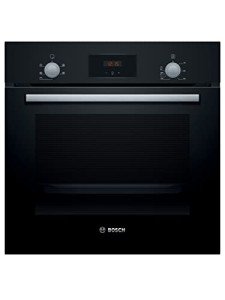The Integrated Cooker: A Comprehensive Guide to Modern Cooking Solutions
The development of kitchen appliances has actually changed food preparation and cooking techniques, making meal preparation more effective and satisfying. Amongst these innovations, the integrated cooker stands apart as a flexible and space-saving addition to modern kitchen areas. This post explores the different elements of integrated cookers, consisting of types, advantages, features, and a comparison with standard cooking techniques.
What is an Integrated Cooker?
An integrated cooker is a compact cooking home appliance that combines multiple cooking functions into one unit. Typically built into kitchen cabinets, these cookers are developed to save area while improving kitchen visual appeals. They typically integrate a range of performances, such as baking, grilling, steaming, and even pressure cooking.
Key Features of Integrated Cookers
- Multi-Functionality: Integrated cookers can perform various cooking jobs, eliminating the need for numerous appliances.
- Space-Saving Design: These cookers fit perfectly into kitchen units, making them ideal for modern-day homes with limited area.
- Advanced Technology: Many integrated cookers come equipped with smart innovation, such as programmable settings, touch-screen controls, and connectivity choices.
- Energy Efficiency: Built with contemporary products and design, they typically consume less energy compared to traditional cooking techniques.
Types of Integrated Cookers
The market offers different types of integrated cookers, each with its unique set of features and performances. Here are the most common types:
| Type | Description | Example Use |
|---|---|---|
| Built-in Ovens | Ovens that are suited wall units or cabinetry | Baking bread, roasting meats |
| Induction Hobs | Cooktops that utilize electro-magnetic energy to heat pots and pans | Rapidly boiling water, sautéing |
| Steam Ovens | Appliances that prepare food using steam for healthier outcomes | Steaming veggies, fish |
| Microwave Ovens | Integrated microwaves for fast heating and cooking | Reheating leftovers, making popcorn |
| Combination Ovens | A mix of traditional and steam cooking technologies | Baking while ensuring wetness retention |
Advantages of Using Integrated Cookers
Integrated cookers provide a host of advantages over standard cooking tools. Below are a few of the key benefits:
- Space Efficiency: Ideal for compact cooking areas, integrated cookers use vertical areas effectively.
- Structured Cooking Process: With numerous functions available, users can shift from one cooking approach to another with very little effort.
- Boosted Aesthetics: Many integrated cookers can be found in streamlined styles that mix well with modern kitchen decoration.
- Improved Cooking Control: Programmable features permit precise cooking, making sure better meal outcomes.
Integrated Cookers vs. Traditional Cooking Appliances
When thinking about meal preparation choices, it is necessary to weigh the benefits of integrated cookers versus standard cooking appliances. Below is a comparison chart:
| Feature | Integrated Cooker | Conventional Appliances |
|---|---|---|
| Area Efficiency | High | Lower |
| Multi-Functionality | Yes | No (needs multiple appliances) |
| Energy Consumption | Typically lower | Can be higher |
| Cooking Speed | Faster (especially with induction) | Varies |
| Style | Modern and smooth | Varies commonly |
The integrated cooker is a forward-thinking device that meets the needs these days's hectic lifestyle. Its multiplicity of functions, space-saving style, and streamlined looks make it a worthwhile investment for any contemporary kitchen.
For those wanting to save time, space, and effort in meal preparation, integrated cookers use an excellent service that boosts the cooking experience while delivering tasty, well-prepared meals.
Frequently Asked Questions (FAQs)
1. What is the average cost of an integrated cooker?
The price of integrated cookers can vary extensively, usually varying from ₤ 500 to ₤ 3,000 depending on features, brand, and size.
2. Just how much upkeep do integrated cookers need?
Upkeep typically includes routine cleaning of surfaces and looking for any software updates if they feature smart innovation. It's suggested to follow the manufacturer's standards.
3. Can I replace my existing oven with an integrated cooker?
Yes, integrated cookers can often replace conventional ovens, however it is important to speak with a professional to make sure compatibility with your kitchen layout.
4. Are integrated cookers tough to install?
Setup can be uncomplicated for those with DIY experience. Nevertheless, working with integrated ovens and hobs qualified technician is advised to guarantee correct setup.
5. Who benefits most from utilizing an integrated cooker?
Households, time-pressed individuals, and those living in compact homes especially benefit from the multi-functionality and space-saving style of integrated cookers.
In this age of benefit and performance, integrated cookers are redefining how we approach food preparation. Whether you are a knowledgeable chef or a cooking beginner, integrating this effective appliance into your kitchen can considerably improve your culinary experience.

